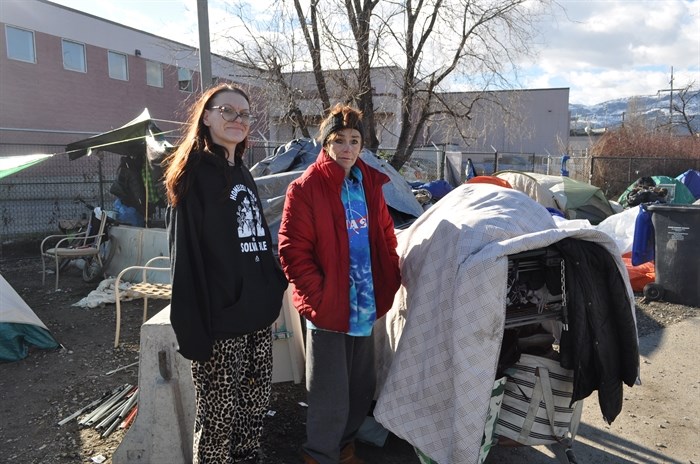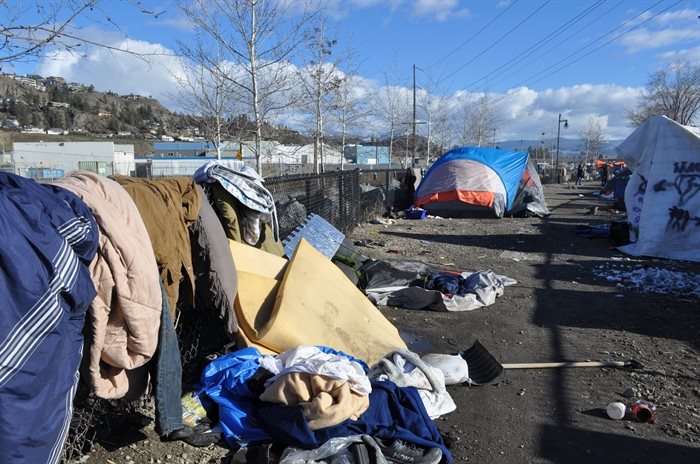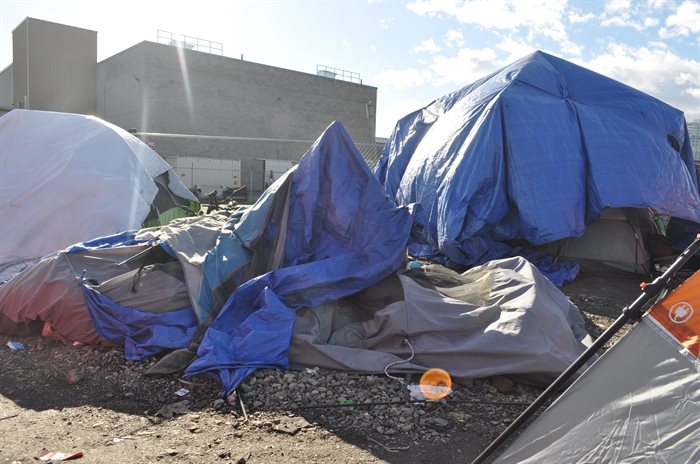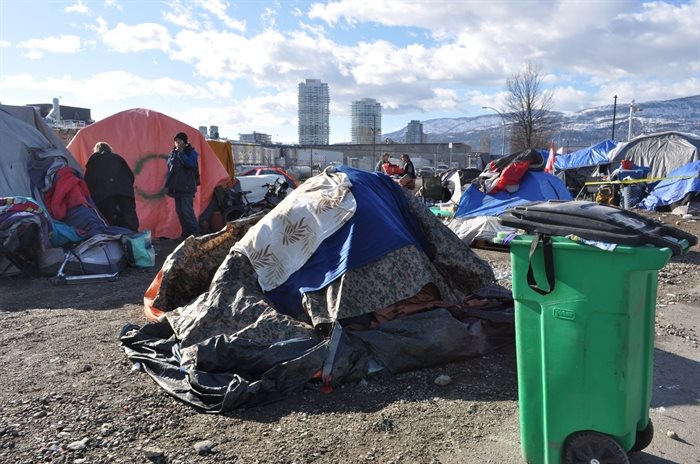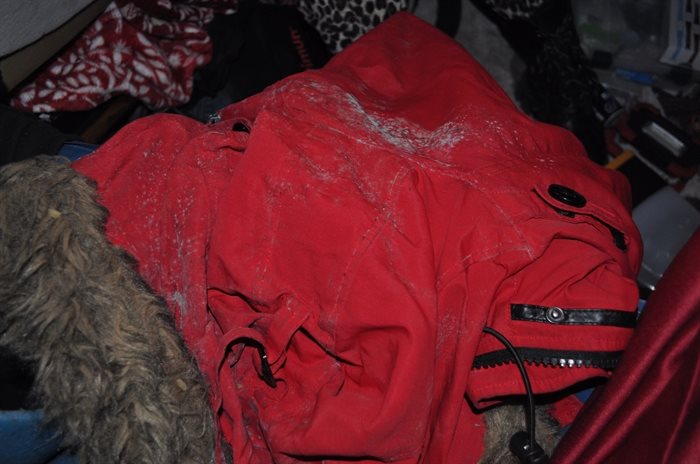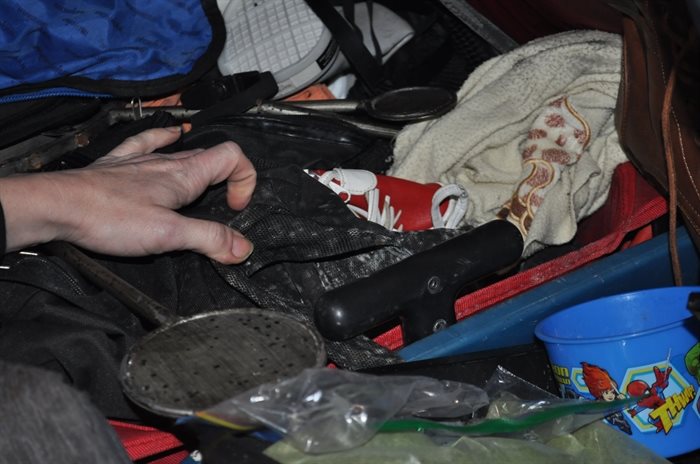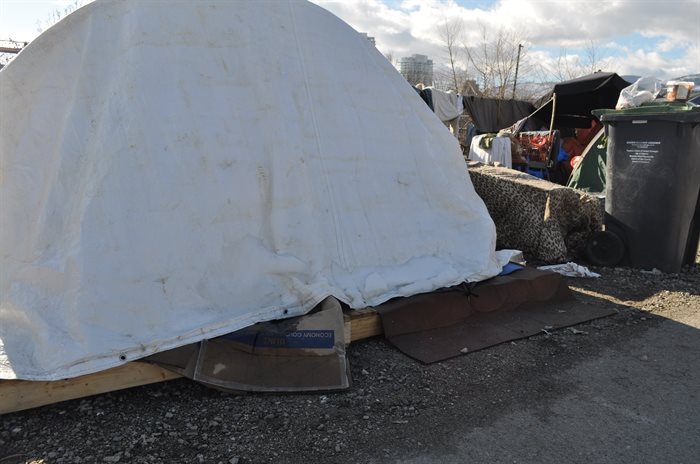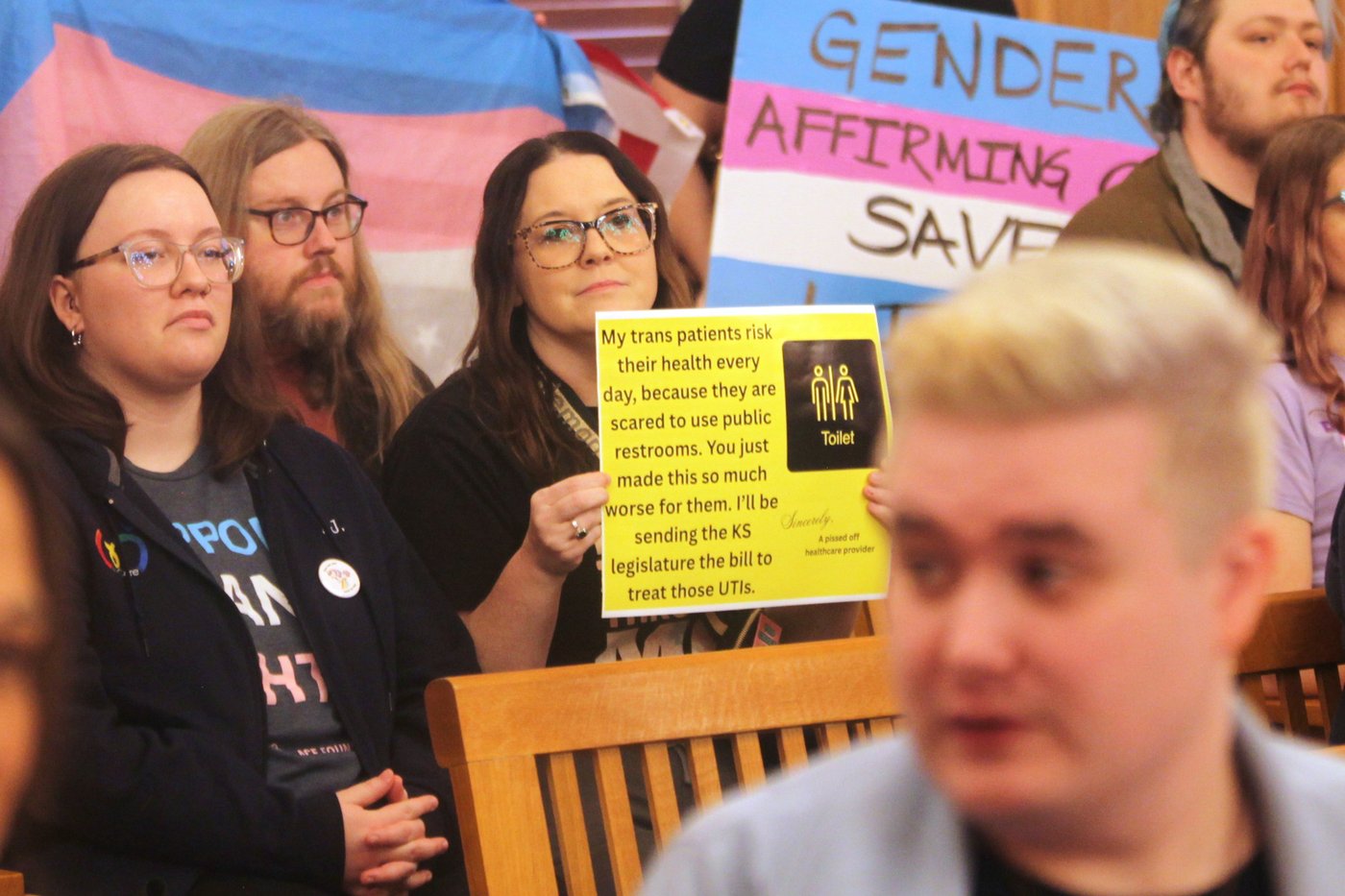Kelowna's homeless fighting cold, mould and stigma at rail trail encampment
Being unhoused and living in a tent is an everyday challenge, but it gets harder in the winter. Hygiene, safety and health are constantly being tested in the cold, humid, mouldy and wet environment residents of Kelowna's tent city along the Okanagan Rail Trail live in.
Erica Stewart has lived on the rail trail for almost two years now, and she says this winter was a hard one. The extreme cold, followed by heavy snow and warmer temperatures makes this winter a very wet one and a hard season to navigate.
"Living the dream every day, nightmares are dreams too right?" she said to one of her neighbours.
"This year it's been very wet, and, because it hasn't been very cold, we've been getting a lot of mould issues inside our tents, outside our tents. Mud is also an obviously big contender, everything is very dirty because of it. When it's frozen at least it doesn't move and everything's just solid, but it's been a challenge being so wet."
READ MORE: 'Invisible to most': Kelowna volunteers raise concerns about worsening homeless crisis
Collapsed tents, clothes and blankets hung up on fences and abandoned belongings can all be seen walking along the rail trail encampment that has suffered a hard winter. This year, more people had to experience winter out of doors with the local population having seemingly grown, but the warmer temperatures did not necessarily make the season any easier.
"Last year there was only maybe 40 of us out here all winter, and we were really spaced out, but this year we're around 150 people I would guesstimate if not 200 at some points, so we're all on top of each other," Stewart said. "The heavy snow a few weeks ago, and the really cold period, collapsed many tents, snapped poles, so it did take a toll on a lot of people's camps; we're sort of just getting back to our structures."
Because of all the melting snow, the rain and the mud, it's a constant battle against mould and filth.
The humidity gets trapped inside tents and the water and mud make their way inside the tents making many personal items mouldy and dirty and forcing residents to throw out their personal belongings which are already few.
Stewart said she's been forced to throw about about 90% of what she owns.
"It's hard to maintain a certain level of items. You collect them as fast as you lose them, or they get destroyed or they get dirty. It's a constant cycle of loss and then re-gaining and it's the most exhausting part of living out here," she said.
READ MORE: Treat homelessness in Okanagan, Kamloops like a wildfire: expert
Living in such close quarters with all this filth, mould and humidity also takes its toll on residents' health. Not only can mould cause congestion, wheezing, itchy eyes and skin, and even infections as shown by the CDC, but living in such proximity to others and in the cold, illnesses spread fast.
"There's definitely a cough that goes around here, it's a walking pneumonia type of deal," she said. "Wound care is another big issue and keeping things sterile. It's hard when it's cold out... you don't want to take your seven pairs of pants off to change your dressing and as soon as you take your stuff off that's when it gets dirty and wet."
One item in high demand right now is proper footwear.
"A lot of people are wearing wet shoes and anybody knows that that's not going to keep you warm and it's going to lead to other problems," Stewart said.
Stewart has lived on the Rail Trail for almost two years after being put out of her flight attendant job as well as her waitressing and bartending jobs because of the COVID-19 pandemic. She advocates for her community and attends schools to raise awareness of the homeless crisis in Kelowna.
"We're not all junkie losers out here, we're not all on drugs out here. There is a drug problem and a mental health problem, but those people are not being helped either, they're constantly being judged and being kicked when they're down so that just makes it that much harder for people to get help," she said.
"If people saw us for who we are, maybe we could get proper help out here."
To contact a reporter for this story, email Gabrielle Adams or call (438) 830-1211 or email the editor. You can also submit photos, videos or news tips to the newsroom and be entered to win a monthly prize draw.
We welcome your comments and opinions on our stories but play nice. We won't censor or delete comments unless they contain off-topic statements or links, unnecessary vulgarity, false facts, spam or obviously fake profiles. If you have any concerns about what you see in comments, email the editor in the link above. SUBSCRIBE to our awesome newsletter here.


